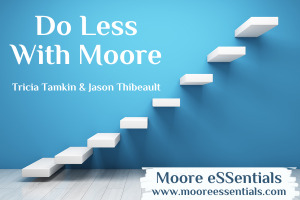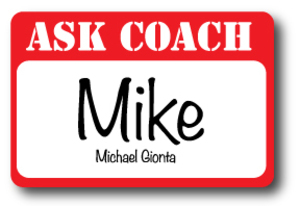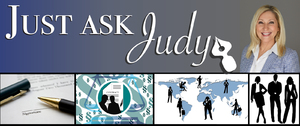Authenticity is not a strategy.
It’s not a parlor trick.
It’s not a corporate initiative.
It’s not a tactic you learn at a conference.
Authenticity is simply what happens when you speak human.
AND THE GOOD NEWS IS: When you speak human – and follow that voice without hesitation – everybody hears you. And when customers taste a trace of your humanity, they come back for seconds, every time.
The problem is, the humanity has been boiled out of us. Companies have become international experts at depersonalizing every encounter.
Here’s a collection of ideas to help your company speak human:
- Imperfection is not a liability. No movie better captures this principle thanThe King’s Speech. My favorite scene is right after Colin Firth finishes his war address to the nation. Because after months of emotional distress and intense training to overcome his speech impediment, therapist Geoffrey Rush, says, “You still stammered.” But with a relaxed smile, the king replies, “I had to throw in a few so they knew it was me.” That’s how you speak human: By letting people experience you experiencing failure. You’re not the pope. It’s okay to market your imperfections. Next time you mess up, simply apologize for your error and show people how you’ll avoid it in the future. They’ll relax, respond with empathy and think more of you than if you hadn’t messed up in the first place. What’s more: They won’t sue you – they’ll pursue you. Again and again. And next time, they’ll bring their friends. Because you’re one of the few people big enough to flaunt your imperfection. Remember: Mistakes are a chance to make the company smarter. Are you afraid to admit them because you see every customer as a potential plaintiff in a malpractice suit?
- Preserve an air of freshness. It’s impossible for customers to feel heard, feel seen and feel essential when your service is delivered in a monotonous, empty tone. Like a great stage actor, your job is to make sure that every member of the audience feels like they’re hearing your words for the first time. Even if it’s only one person – that’s still an audience. Take it from a guy who’s worn a nametag every day for eleven years: People make the same five jokes every single day. But I never let my responses get stale. I don’t snap at people. And I certainly don’t roll my eyes and say, “Yes, Captain Obvious, I’m aware that I’m still wearing a nametag. Thanks for the tip.” Instead, I have fun with people. I change my answers every few months, just to keep it fresh. And your challenge is to do the same. Next time someone asks you a question you’ve heard a thousand times, don’t reach for ready-made replies. Instead of being rigidly scripted and annoyingly canned, dance in the moment. Respond to the unique needs of the individual, not from the mechanical instructions of the employee handbook. Will you surrender to thy script or thy soul?
- Adjust yourself to the personality of the guest. No, I’m not talking about mirroring or matching or whatever sleazy, neurolinguistic-programming tactic you learned at some weekend seminar. That’s manipulation, and customers can smell it like burnt hair. Instead, stay true to yourself while remaining appropriate to the situation. Learn to customize every conversation. Here are a few examples I’ve learned from my clients: First, not all women want to be called “ma’am.” It makes them feel old. Second, not every customer needs help shopping. It makes them feel suffocated. Third, not every guest needs to be put on the spot to introduce themselves to the group at their first meeting.It makes them feel awkward. Fourth, not every first-timer needs to give to the collection plate. It makes them feel pressured. Fifth, not every passenger needs to be pampered with hot nuts, six bottles of water and a Swedish foot massage. It invades their privacy and disturbs their work. And sixth, not every caller needs to hear his name repeated back to him seventeen times. It makes them feel patronized. The point is: Communication isn’t the goal – meeting people’s needs is. Adjust yourself accordingly. How does your approach change with different customers?
- Personal expression trumps professional polish. As a public speaker, it eats away at me to watch speakers who are too polished, too rehearsed and too choreographed. That’s the problem with Toastmasters: They focus so much on the mechanics that they forget about the humanity. And the result is a population of public speakers who become so rigid that they couldn’t order dinner without a script. Here’s the reality: Speaking with the human voice means honoring the moment. Tapping into your expressive faculties and sharing from place of imperfect truth. Even if you’re not a regular at the podium, the suggestion is still the same: You don’t need public speaking lessons; you need to learn how to cut your soul open. That’s who people relate to, that’s who people sit down for and that’s who people tell their friends about. The one person brave enough to bare his truth. If you do that, people won’t care how many times you say “um.” Have you already crossed the fine line between preparation and automation?
- Anchor yourself in the concrete foundation of your humanity. In a recent presentation, Leo Burnett’s executive Mark Tutssel explained, “The great brands of this century are the brands that don’t speak to consumers, but instead speak with people. As benchmark for the creative thinking within our company and for our brands, speaking human is at the heart of everything we do.” Can you say that about your organization? Can customers and employees say it? I certainly hope so. Because if your humanity doesn’t have a palpable presence in your labors, the fruit of your labors will taste like chalk. My suggestion: Make the conscious choice to blend your humanity into every message you send. Create an instant filter to execute against before leaving voicemails, sending emails, publishing blogs and updating social media statuses. You might ask questions like, “Would a human being say this?” or “On a scale of one to ten, how much humanity does this message contain?” Try it for a week. See what happens. Because the point is not to spend extra time debating your message, rather, to create a point of pause that heightens your awareness of the humanity in your message. What structure would you have to put in place today to deliver a human voice?
- Ante up the emotional temperature. The only thing people can make a judgment about is how interacting with you, your brand, your website, your store, your company and your people – makes them feel. As such, branding is about two things: How people experience you, and how people experience themselves in relation to you. Everything else is just an accessory. In my experience, the differentiator is language. That’s the distinction between human companies and emotionally anemic corporate monoliths: They speak with soul instead of dehydrated jargon. Try this: Make a list of the twenty most annoying, tired, vague, empty, overused eye-rolling words and phrases customers hate to hear. Convert the document into a poster and hang it all around the walls of your organization. Then, any time you hear one of those words being used, charge that employee dollar. Not only will you raise enough money to throw a monthly party, simply by process of elimination, people will begin to speak with a more human, more emotional voice. Remember: It’s not enough to compete for people’s attention – you have to campaign for their emotions. Is your service vulcanized?
REMEMBER: Speaking human is the music people have been waiting their whole lives to hear.
Follow that voice without hesitation.
Let your authenticity wash over them like a spring rain.





